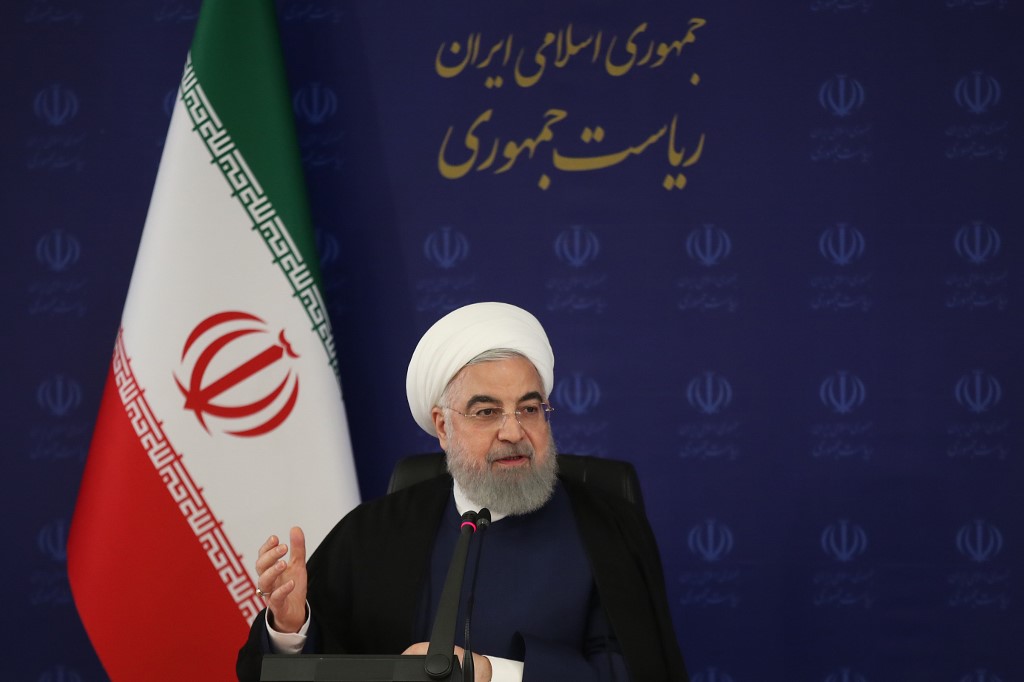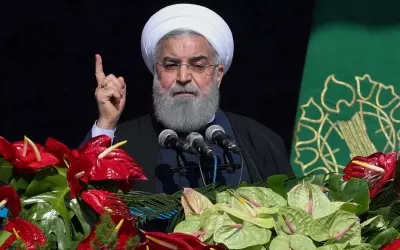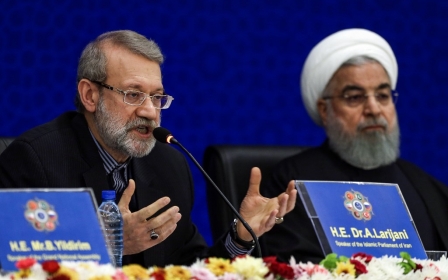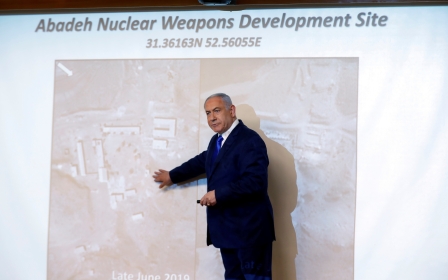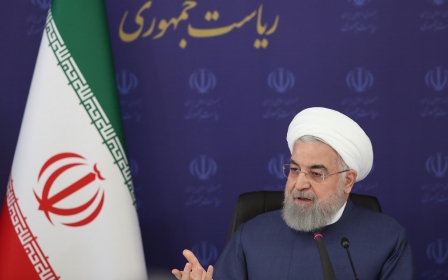How will the Iran-Israel confrontation play out in Syria?
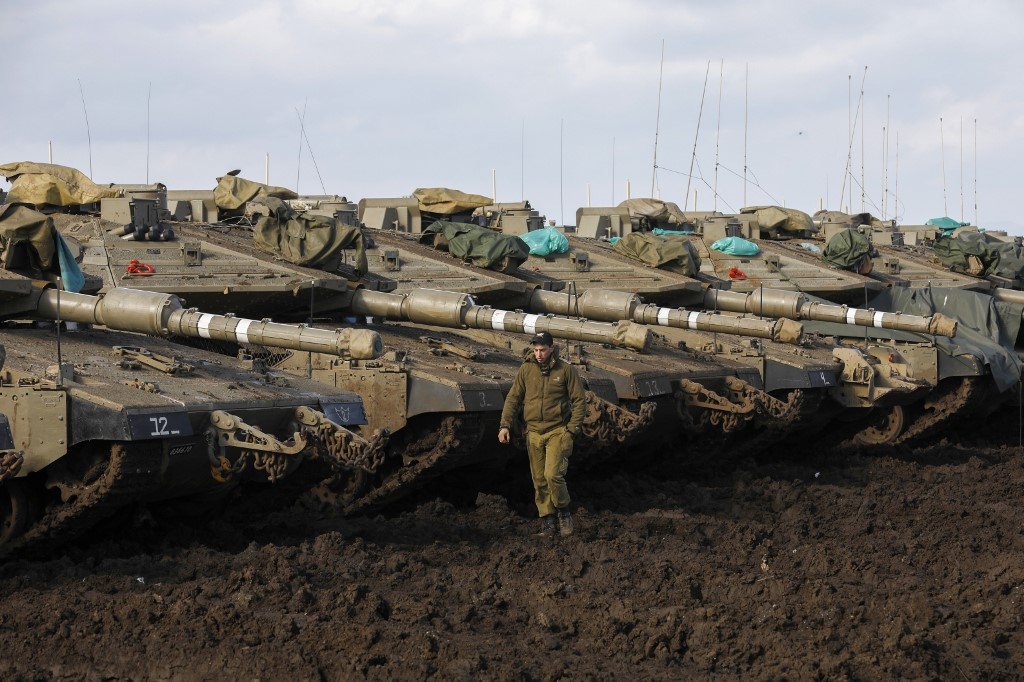
Naftali Bennett, Israel’s outgoing defence minister, said last month that Iran had begun withdrawing its forces from Syria and urged his successor, Benny Gantz, to maintain pressure on Tehran. An Iranian official refuted the Israeli claim, citing “no change in the quantity and quality of Iran’s advisory presence in Syria”.
In recent years, Syria has emerged as the main battleground of the Iranian-Israeli confrontation. The two powers have conflicting interests in the Syrian war, and the latest contradictory statements raise questions about their strategic objectives - and how the confrontation will play out, in both the short and long term.
Asymmetric warfare
Israel’s objectives and policies in Syria have evolved since the beginning of the civil war in 2011, with the prominent roles of Iran, Hezbollah and other Shia groups in supporting President Bashar al-Assad influencing Israel’s strategic calculations.
A victory by Assad and his Iranian allies is seen by Israeli leaders as an existential threat. A prolonged war that weakens Assad, but allows him to restore stability to Syria without threatening Israel, may be a desired outcome.
New MEE newsletter: Jerusalem Dispatch
Sign up to get the latest insights and analysis on Israel-Palestine, alongside Turkey Unpacked and other MEE newsletters
Iran's huge investment in the Assad regime is driven by perceived national interests, rather than ideological orientation
In the last few years, Assad has retaken most of the territories he initially lost, while Israel - with relative impunity - has focused on bombing Iran’s weapons supplies to Hezbollah and Shia militias in Syria. Israeli military leaders are taking advantage of the implicit or explicit support of the Trump administration and some of Iran’s regional rivals, but the strikes clearly violate international law and Syrian sovereignty, fuelling regional economic and political destabilisation.
Iran finds itself confronted by the US and its allies, including Israel and Arab Gulf states, who possess massive military and economic resources. Unable to match these resources, the Iranians have developed an asymmetric warfare strategy.
One of Tehran’s main strategic advantages is its ability to build partnerships with states and non-state actors in its neighbourhood. Iran’s alliance with the Assad regime serves a number of objectives; Syria plays a key role in ensuring Iran’s arms supplies to Hezbollah, and the Assad regime forms an indispensable part of the “axis of resistance”.
A matter of survival
Iranian leaders believe that if they do not fight Sunni extremists in Damascus, they will have to fight them in Tehran (the forward-defence doctrine). Thus, the survival of the Assad regime represents a major component of Iran’s national security strategy. It is not only about projecting power; it is a matter of survival for the Islamic Republic. As such, Iran is certain to fight as hard as it can to maintain some form of presence in Syria.
In the ongoing confrontation with Iran in Syria, however, Israel enjoys several strategic advantages, including superior intelligence, strong US support and tacit Russian approval. Russia and Israel have a deconfliction mechanism in place, allowing Israeli jets to strike Iranian targets in Syria without threatening Russian forces.
Russian officials have been calling for restraint from all parties in Syria, but Moscow’s reluctance to take a strong stand against Israeli air strikes suggests a desire to avoid confrontation with Israel, and a willingness to tolerate some degrading of Iran’s capabilities in Syria.
A major driver of Russia’s intervention in Syria is to maintain its airbase in the western province of Latakia and its naval base in the port of Tartus. Analysing the long history of Moscow-Tehran relations, it is clear that their current alliance is tactical, largely driven by a common animosity towards the Trump administration and US sanctions.
Key vulnerabilities
Despite its military and strategic advantages, Israel has key vulnerabilities. Peace in Syria cannot be imposed by force; neighbouring countries must accept that peace, and certain Israeli policies make this a challenge. Israel’s plan to annex 30 percent of the West Bank has led the Palestinian Authority to suspend security cooperation with Israel, and it could be the final blow to the Israeli-Jordanian peace treaty.
At the same time, Iran’s huge investment in the Assad regime is driven by perceived national interests, rather than ideological orientation. Rather than seeking a “Shia crescent” from Tehran to Beirut, Iran aims to establish a strategic balance of power with Israel and Sunni Arab states. As such, any move to scale down its Syrian presence - if true - should be seen as a reversible, tactical choice.
Currently, an all-out war between Iran and Israel seems unlikely. Both the US and Russia want to bring their troops home after securing their own strategic interests. Regional powers seem to agree that a broader military confrontation would further destabilise the entire region.
Instead of pursuing such a costly option, the Israel-US-Gulf axis may be opting to increase military and economic pressure on Iran in Syria and elsewhere to promote regime change in Tehran. Yet, there are no credible signs of regime collapse, and the Iran-Israel rivalry will likely continue to play out in multiple arenas, including cyberattacks, with hacking attempts recently reported in both countries.
The views expressed in this article belong to the author and do not necessarily reflect the editorial policy of Middle East Eye.
Middle East Eye delivers independent and unrivalled coverage and analysis of the Middle East, North Africa and beyond. To learn more about republishing this content and the associated fees, please fill out this form. More about MEE can be found here.



